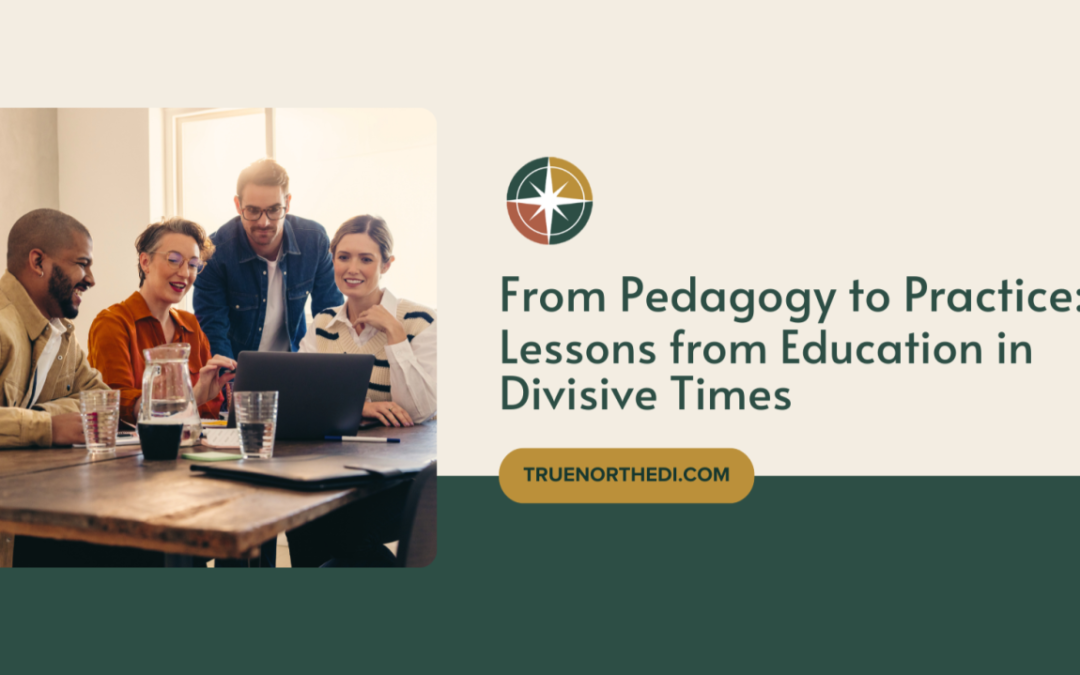Written by Cardozie Jones, CEO and Founder, True North EDI
As a consultant and facilitator, my work centers on driving organizational and institutional change, specifically supporting those striving to align their aspirations with their actions to create more just and humane professional communities. However, the results of the 2024 election have brought into sharp focus—on a societal level—a significant disconnect between what Americans claim to want and the actions and behaviors we are using to achieve it. In seeking to better understand what I’ve been feeling, observing, and, in many ways, contributing to, I found myself reflecting on my roots.
I began my career as a classroom teacher in New York City in the early 2000s. Back then, my understanding of systems and institutions was developing alongside my educational practice. Transitioning into equity work more than a decade later, I saw how my background differed from others in the field. Many come from activism spaces, grassroots organizing, corporate HR, or nonprofit work. Each of these pathways brings unique skills and perspectives to the larger effort, and while there are overlaps, the distinctions in these experiences shape how practitioners approach the work. For me, it has always been pedagogy—the art and science of teaching and learning—that serves as the bedrock of my practice.
The following represents what I’m referring to as “orientations” that I developed as a teacher and have significantly informed my current practice. But an orientation represents a direction; they’re not universal truths and I present them as neither right nor virtuous. But they have held me accountable to a “by any means necessary” approach rooted in holding myself, rather than others, accountable for my impact. I offer these orientations to those who subscribe to a theory of change in which meaningful understanding is the predecessor to meaningful action.
Orientation 1: If Half My Students Fail the Test, That’s on Me
I am accountable for every learner—not just the ones I like, believe in, or see echoes of myself in. Their understanding is a reflection of my practice regardless of those factors or circumstances I can easily point to that make learning challenging. Accountability doesn’t mean I’m to blame or should feel guilty if students miss the mark; it means a commitment to pivot, to listen, to research, and to try new strategies when outcomes don’t align with intentions.
Division becomes a self-fulfilling prophecy when we choose–for even the most valid of reasons–to completely withdraw from connecting with those who sit in opposition to our beliefs, seeing ourselves as separate. This orientation requires us to ask: What am I missing? What other resources do I have? Will the world I live in be better because I’ve walked away from this?

